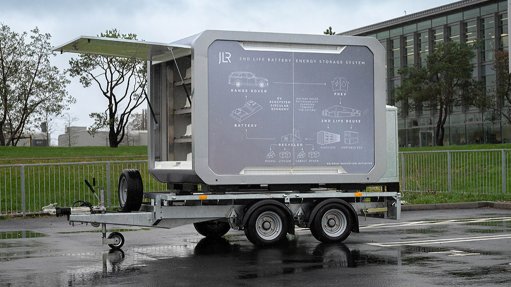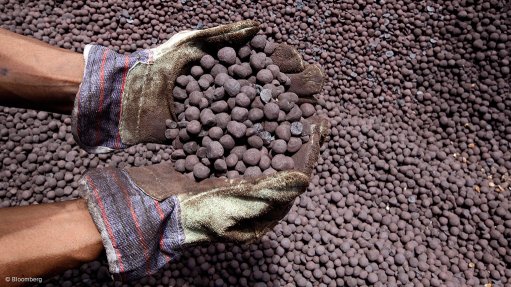African exports climb to 30% of Federal Mogul’s sales
In 2000, exports into Africa from South Africa represented less than 5% of the turnover of Federal Mogul Motorparts Africa, with sales largely centred around Zimbabwe, Zambia, Malawi and Mozambique.
Today, African exports represent 30% of sales, with trade expanded into 41 countries, says Federal Mogul Motorparts Africa sales and marketing director Chris Hillier.
Federal Mogul has several factories and a distribution centre in South Africa.
However, running a successful business in Africa has numerous challenges, notes Hillier.
There are, for example, no formal vehicle parc statistics available for countries north of the Zambezi river.
Also, no records are kept on the high level of used-vehicle imports, with data on vehicle registrations largely unavailable.
This makes it difficult to know which parts to provide to which market, says Hillier.
Also, the number of competent, professional aftermarket and engineering facilities outside South Africa is limited.
Economic data, in general, can also be sketchy and out of date, with import data often unreliable, owing to the over- and under-invoicing of products; the use of incorrect tariff codes to avoid or reduce duties; product smuggling; corruption; and the use of unconventional logistics routes to avoid duty payments.
Many African markets are often unregulated, with no clear distribution channels, adds Hillier.
Markets are also “extremely overtraded”, resulting in “extreme price pressure”, with cheap brands flourishing.
Informal markets are generally bigger than formal markets.
There is also a high degree of specialisation. For example, in Lagos, Nigeria, distributors may only supply bearings or cylinder components, and often only for a particular make of vehicle.
Distributors may also sell only a single brand, with the goods sometimes counterfeit.
“Counterfeit products are a huge problem,” says Hillier.
A knock-on effect of this is that distributors and clients are suspicious of any packaging changes.
“Packaging changes need to be well communicated in advance, or they will not be accepted by the market,” states Hillier.
Moving product into 41 African countries also requires some logistical gymnastics, he adds.
Logistics lead times have to be long, owing to poor logistical infrastructure, distance from suppliers, the high cost of transport, erratic foreign currency supply and the unreliability of freight movement.
“Port congestion is a big issue on the West Coast,” says Hillier.
Containers are also often unloaded by hand, and not with forklifts, which makes packing the container the original solution to the problem.
“Packing the parts in boxes, means it can be unloaded by a chain of people,” says Hillier.
Research Vital
Federal Mogul’s approach to tackling a new African market starts with desk research, collating all the available research, including that from South Africa’s trade commissions.
“We identify potential products, look at competitive products, possible markets and competitor pricing, as well as likely distribution channels,” says Hillier.
Federal Mogul will then also make in-depth visits to the market, using Department of Trade and Industry allowances to conduct market visits.
“We will enter the market slowly, building our share in small increments, registering the brands and trademarks in all territories,” says Hillier.
“And remember, the first three or four visits will be an investment, with little business being conducted.”
Setting up a number of key distributors in each market will also be a good business decision.
“Do not judge many African markets on stereotyped developed market standards,” advises Hillier.
“Find people who are passionate and loyal to your products, train them, support them and accept that there are going to be some errors. Be aware of local customs and respect them.”
Hillier also adds a few personal tips, such as the fact that credit cards may be of little use outside hotels.
Using the same taxi driver on every trip will ensure ease of business – “which is not done in hotel foyers, but in the market”.
“Also, airfares and hotel costs will be some of the highest in the world.”
Comments
Press Office
Announcements
What's On
Subscribe to improve your user experience...
Option 1 (equivalent of R125 a month):
Receive a weekly copy of Creamer Media's Engineering News & Mining Weekly magazine
(print copy for those in South Africa and e-magazine for those outside of South Africa)
Receive daily email newsletters
Access to full search results
Access archive of magazine back copies
Access to Projects in Progress
Access to ONE Research Report of your choice in PDF format
Option 2 (equivalent of R375 a month):
All benefits from Option 1
PLUS
Access to Creamer Media's Research Channel Africa for ALL Research Reports, in PDF format, on various industrial and mining sectors
including Electricity; Water; Energy Transition; Hydrogen; Roads, Rail and Ports; Coal; Gold; Platinum; Battery Metals; etc.
Already a subscriber?
Forgotten your password?
Receive weekly copy of Creamer Media's Engineering News & Mining Weekly magazine (print copy for those in South Africa and e-magazine for those outside of South Africa)
➕
Recieve daily email newsletters
➕
Access to full search results
➕
Access archive of magazine back copies
➕
Access to Projects in Progress
➕
Access to ONE Research Report of your choice in PDF format
RESEARCH CHANNEL AFRICA
R4500 (equivalent of R375 a month)
SUBSCRIBEAll benefits from Option 1
➕
Access to Creamer Media's Research Channel Africa for ALL Research Reports on various industrial and mining sectors, in PDF format, including on:
Electricity
➕
Water
➕
Energy Transition
➕
Hydrogen
➕
Roads, Rail and Ports
➕
Coal
➕
Gold
➕
Platinum
➕
Battery Metals
➕
etc.
Receive all benefits from Option 1 or Option 2 delivered to numerous people at your company
➕
Multiple User names and Passwords for simultaneous log-ins
➕
Intranet integration access to all in your organisation


















